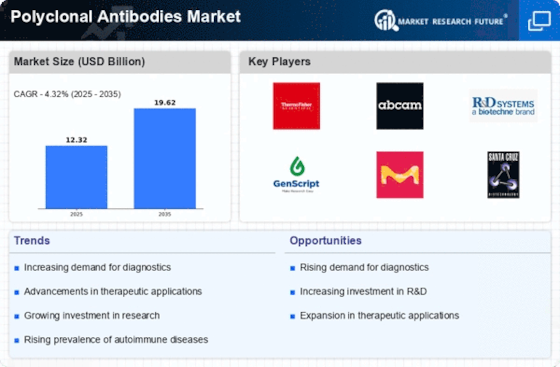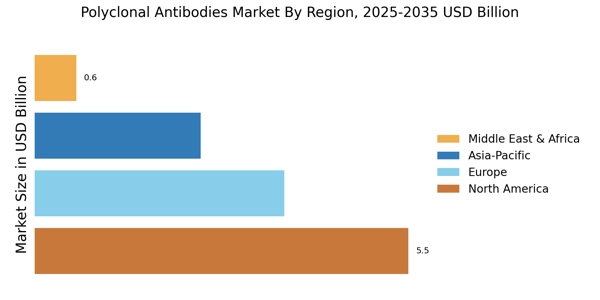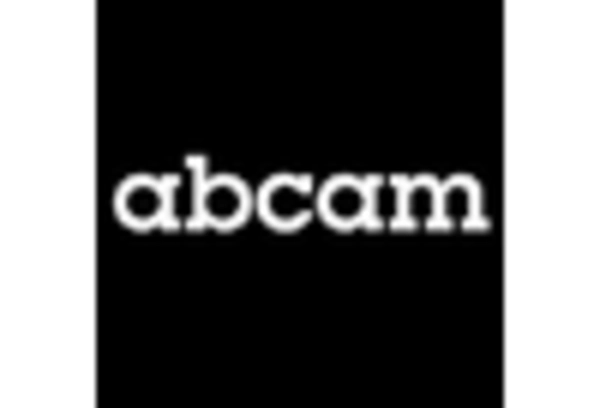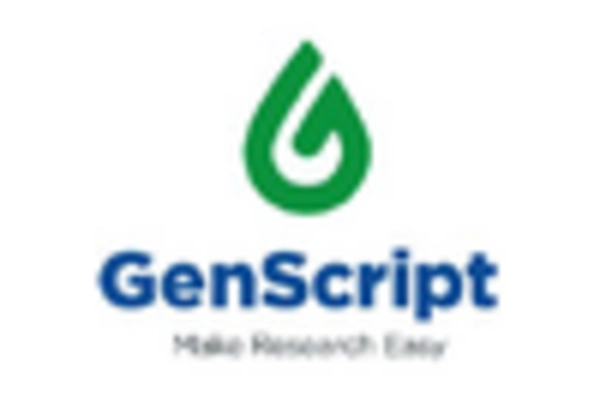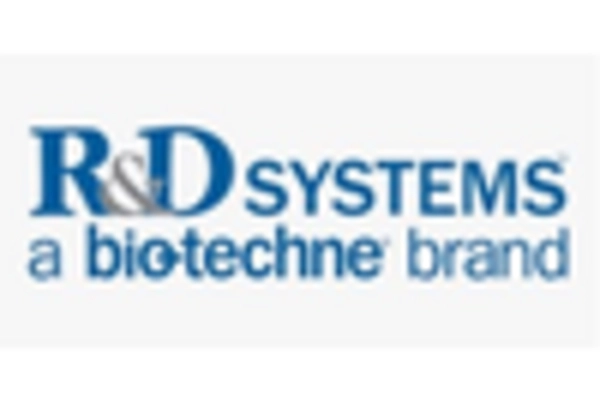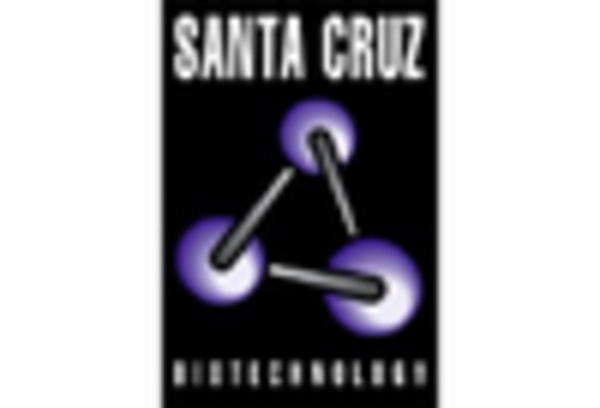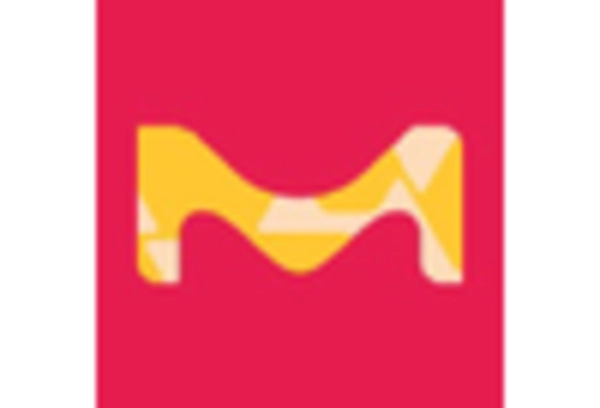Growing Focus on Diagnostics
The growing focus on diagnostics is a pivotal driver for the Polyclonal Antibodies Market. As healthcare systems prioritize early detection and accurate diagnosis of diseases, the demand for diagnostic tools that utilize polyclonal antibodies is increasing. These antibodies are essential in various diagnostic assays, including serological tests and pathogen detection. The market for diagnostic antibodies is projected to expand, driven by the need for reliable and efficient diagnostic solutions. As healthcare providers and laboratories seek to enhance their diagnostic capabilities, the Polyclonal Antibodies Market is likely to experience substantial growth, reflecting the critical role of polyclonal antibodies in modern diagnostics.
Rising Investment in Biotechnology
The rising investment in biotechnology is a significant driver for the Polyclonal Antibodies Market. Increased funding from both public and private sectors is facilitating research and development in antibody production and applications. This influx of capital is likely to accelerate innovation and the development of new polyclonal antibody products. Furthermore, as biotechnology companies expand their portfolios, the demand for polyclonal antibodies is expected to rise. The growing interest in biopharmaceuticals and personalized medicine is also contributing to this trend, as companies seek to develop targeted therapies that utilize polyclonal antibodies. Thus, the Polyclonal Antibodies Market stands to benefit from this wave of investment.
Increasing Applications in Research
The Polyclonal Antibodies Market is experiencing a surge in demand due to the increasing applications of polyclonal antibodies in various research fields. These antibodies are utilized in immunohistochemistry, western blotting, and ELISA, among other techniques. The versatility of polyclonal antibodies allows researchers to target multiple epitopes, enhancing the reliability of experimental results. As research institutions and laboratories expand their capabilities, the need for high-quality polyclonal antibodies is likely to grow. This trend is further supported by the rising number of research projects and funding initiatives aimed at advancing scientific knowledge. Consequently, the Polyclonal Antibodies Market is poised for growth as it caters to the evolving needs of the research community.
Expansion in Therapeutic Applications
The therapeutic applications of polyclonal antibodies are expanding, which is a key driver for the Polyclonal Antibodies Market. These antibodies are increasingly being used in the treatment of various diseases, including autoimmune disorders, cancers, and infectious diseases. The ability of polyclonal antibodies to recognize multiple antigens makes them particularly valuable in therapeutic settings. Recent studies indicate that the market for therapeutic antibodies is projected to reach substantial figures, with polyclonal antibodies playing a crucial role in this growth. As healthcare providers seek effective treatment options, the demand for polyclonal antibodies is expected to rise, thereby propelling the Polyclonal Antibodies Market forward.
Technological Advancements in Production
Technological advancements in the production of polyclonal antibodies are significantly influencing the Polyclonal Antibodies Market. Innovations in bioprocessing and purification techniques have enhanced the efficiency and yield of antibody production. These advancements not only reduce production costs but also improve the quality and consistency of the antibodies produced. As manufacturers adopt these new technologies, they are better equipped to meet the increasing demand from research and clinical applications. The market is likely to benefit from these improvements, as they enable the production of high-quality polyclonal antibodies at a larger scale, thus supporting the overall growth of the Polyclonal Antibodies Market.


